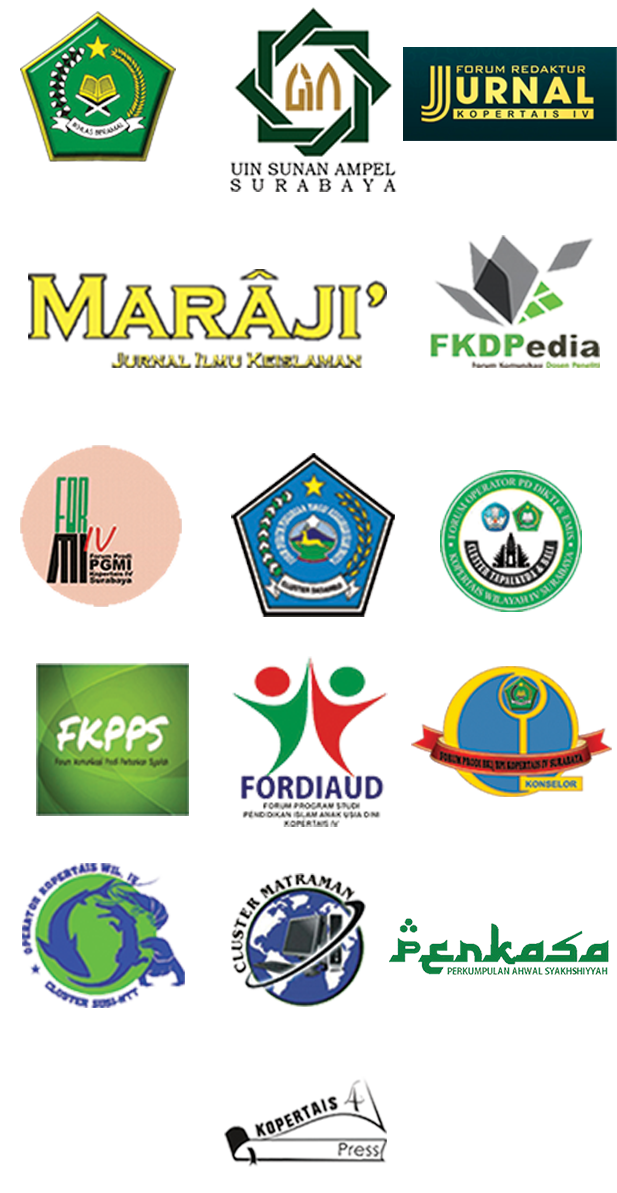Yuridis Normatif Doa Lintas Agama dalam Kehidupan Multikultural
Abstract
This paper raises a culture that develops at the level of multicultural society, which is a gathering event, having du'a together among adherents of religion. In this paper, the writer tries to take some references and then make a dialogue between those references, means the Qur'an itself, the book of interfaith fiqh and the MUI fatwa. Such an activity would be highly controversial between the pros and the cons. In the view of its own normative path, the Qur'an clearly states that non-Muslims will be rejected and in digression, although this context does not explain about du'a together. While the fiqh of interreligions, because the basic is the inclusive pluralist theology and not Islamic faith (aqidah Islam). So it is clear, if the basic of this book is pluralism, this book is an understanding of pluralism, or an understanding of inclusiveness and openness and understanding that a part of other religion has a path of truth and savety that is not as complete as the religion he embraces. Therefore, according to this book, this tradition is a natural thing and not problematic. While the MUI itself in its fatwa provides legal values and procedures of praying that are allowed and not allowed.
Downloads
References
Sukiratnasari, Anastasya. (2015). Manual Etika Lintas Agama Untuk Indonesia, Geneva: Globethics.net.
Hasan, Muhammad Tholhah. (2017). Pengertian dasar tentang multikulturalisme dan pendidikan multicultural, Malang : Pascasarjana 3 Unisma), bahan kuliah program doctor PAI Multikultural.
Musnad as-Shohabah fi al-Kutub al-Tis’ah, bab, musnad Abdurrahman ibnu shokhra, Abu Hurairoh, Jus 6.
Shohih Muslim, Bab Qubuli al-Shodaqoh min al-Kasbi at-Toyyib, juz 2, 703.
Abu al-Fada’ Ismail bin umar bin katsir al-Qirsy al-Dimasqo, Tafsir al-Qur’ani al-Adzim (Dar al- Totyyibah li an-Nasyr wa a-Tauzi’ 1999) Tafsir Ibnu Katsir, Bab 14, Juz 4.
Samsuddin, Al-Qurthuby. (t.t). Tafsir Al-Qurtubi (Mauqiu Ya’sub), Bab 9, Juz 9,.
Muhammad bin Jarir bin Yazid bin Katsir bin Gholib al-Amaly abu Ja’far at-Tobary. Jami’ al-Bayan fii ta’wili al-Qur’an. Tafsir al-Thobary, Bab ayat 14, Juz 7.،
Thoha, Anis Malik. (2005). Tren Pluralism Agama, Jakarta: Perspektif.
Madjid, Nurkholis dkk. (2004). Fiqih Lintas Agama; Membangun Masyarakat Inklusif Pluralis Jakarta : Paramadina.
NJ. Wolly. Meeting at the princints of faith.
Fathu al-Wahhab jus 1.
Hasyiyatu al-Bajirumi ala Al Manhaj, bab, al-Istisqo’ juz 4.
Ma’na al-Muhtaj ila Ma’rifati al-Fadz al-Minhaj, bab Sholat al-Istisqo’. Jus 4.
Fatwa Majlis Ulama Indonesia (MUI) Nomor : 3/MUNAS VII/MUI/7/2005 tentang Do’a bersama. MUI dalam musyawarah nasional VII, pada 19-22 Jumadil Akhir 1426 H. / 26-29 Juli 2005 M.
Fatwa Majlis Ulama Indonesia (MUI) Nomor : 3/MUNAS VII/MUI/7/2005 tentang Do’a bersama. MUI dalam musyawarah nasional VII, pada 19-22 Jumadil Akhir 1426 H. / 26-29 Juli 2005 M.
Buletin Dakwan Masjid Jami’ al-Azhar Jaka Permai Bekasi edisi 116, 15 Ramadhan 1425/29 Oktober 2004









